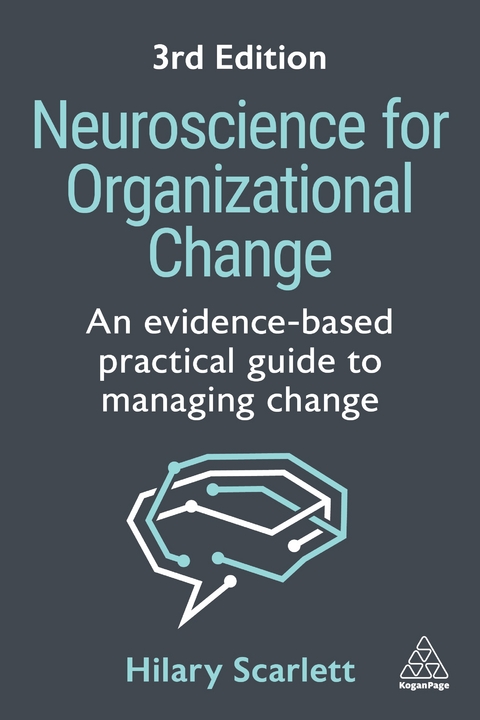
Neuroscience for Organizational Change
Kogan Page Ltd (Verlag)
978-1-3986-2130-5 (ISBN)
- Noch nicht erschienen - erscheint am 03.07.2025
- Versandkostenfrei innerhalb Deutschlands
- Auch auf Rechnung
- Verfügbarkeit in der Filiale vor Ort prüfen
- Artikel merken
Organizational change can be unpredictable and stressful. With a better understanding of what our brains need to focus, organizations can increase employee engagement, productivity and well-being to successfully manage periods of uncertainty.
Drawing on the latest scientific research, Neuroscience for Organizational Change explores the need for social connection at work, how best to manage emotions and reduce bias in decision-making and why we need communication, involvement and collaboration to help us through change.
Practical tips and reflections can be found throughout, as well as examples of how these insights have been applied at organizations such as Lloyds Banking Group and PepsiCo. The book also sets out a science-based planning model, SPACES, to enhance engagement.
This updated edition of Neuroscience for Organizational Change contains a new chapter on Neurodiversity and Change for organizations as they become aware of the need to create an environment where all employees can perform at their best. It also features revised content reflecting the latest insights and developments in AI, and updated real world examples, giving a long-term view of the benefits of applying neuroscience in organizations.
Hilary Scarlett is an international speaker, consultant and author. Her work has spanned Europe, North America and Asia and focuses on helping leaders in the private and public sectors to introduce change efficiently and effectively. Based in London, UK, she is a member of the British Neuroscience Association and the British Psychological Society.
Chapter - 01: Introduction – why the world needs top-performing teams and the argument for team coaching;
Chapter - 02: Beyond tools and techniques – why is a team coach’s ‘way of being’ so important?;
Chapter - 03: Team coaching frameworks, models and approaches – introducing the ‘Creating the Team Edge’ framework;
Chapter - 04: The purpose driven team – why does being purpose driven matter so much?;
Chapter - 05: Team identity – why is team identity so important?;
Chapter - 06: Team values and beliefs – why are team values and beliefs so important?;
Chapter - 07: Team awareness – why is it important to develop awareness both in and beyond a team?;
Chapter - 08: Team relatedness – why is building trust and connection so important?;
Chapter - 09: Team ways of working – how can teams keep reinventing how they work together?;
Chapter - 10: Team transformation – what do teams need to do to become transformational?;
Chapter - 11: Developing Team Coaches and Leaders – Developing your team coaching practice;
Chapter - 12: Neurodiversity and Change – create an environment where employees perform best;
Chapter - 13: Conclusion – what does the future require of team coaching?
| Erscheint lt. Verlag | 29.7.2025 |
|---|---|
| Verlagsort | London |
| Sprache | englisch |
| Maße | 156 x 234 mm |
| Themenwelt | Sachbuch/Ratgeber ► Beruf / Finanzen / Recht / Wirtschaft ► Wirtschaft |
| Geisteswissenschaften ► Psychologie ► Arbeits- und Organisationspsychologie | |
| Wirtschaft ► Betriebswirtschaft / Management ► Personalwesen | |
| Wirtschaft ► Betriebswirtschaft / Management ► Planung / Organisation | |
| ISBN-10 | 1-3986-2130-7 / 1398621307 |
| ISBN-13 | 978-1-3986-2130-5 / 9781398621305 |
| Zustand | Neuware |
| Haben Sie eine Frage zum Produkt? |
aus dem Bereich


